Iran, Tajikistan mark turning point in ties with presidential visits
President of Tajikistan’s trip to Tehran is indicative of the two countries’ determination to facilitate sustainable development and security and stability in the region.
Emomali Rahmon, heading a high-ranking delegation, traveled to Iran on Sunday and met with Leader of the Islamic Revolution Ayatollah Seyyed Ali Khamenei as well as Iranian President Ebrahim Raeisi among others.
“It can be said that the visit by Rahmon and his accompanying delegation to Tehran is a turning point in the two countries’ relations,” Iran’s Nour News, affiliated with the country’s Supreme National Security Council (SNSC), said in an article published on Monday.
The visit highlights the determination of the two countries, which share the same religion, culture, and language, to boost their synergy to achieve sustainable development and regional security and stability.
“This, in the next step, can lead to increased development within the framework of the Shanghai Pact,” the Nour News said.
Trade volume between Iran and Tajikistan has already increased to more than $131 million since last year, when Iran joined the Shanghai Cooperation Organization (SCO).
Last September, during President Raeisi’s visit to Dushanbe, the SCO formally accepted Iran as a new member at its 21st summit, after the country waited for years as an observer to join the alliance.
This year, on the sidelines of the two presidents’ meeting in Tehran, Iran and Tajikistan signed 17 agreements and memorandums of understanding to boost cooperation in a variety of fields, including economy, trade, energy, tourism, science, sports, and transportation, as well as industries and new technologies.
The agreements signed during Rahmon’s trip to Tehran and the eight ones signed during Raeisi’s September trip to Tajikistan are among the initiatives paving the way for the full revival of economic ties and even in broader scopes within the framework of the Shanghai pact.
Meanwhile, Ayatollah Khamenei told the visiting Tajik president during a meeting on Monday that there are many potential grounds for further expansion of cooperation between the two countries to levels far above the present level.
The Leader added that the Iranian President’s first foreign trip to Tajikistan proves how determined the Iranian government is about the expansion of relations with Tajikistan.
The Tajik president’s visit to Tehran is a step toward activating the Raeisi administration’s good neighborly diplomacy and promoting relations with neighboring countries with the goal of safeguarding the country’s national interests.
“Rahmon’s visit can be considered as a new step in the thirteenth administration’s active and good neighborly diplomacy realized through the Iranian president’s trips to Tajikistan, Turkmenistan, Russia, Qatar, Oman, and the subsequent visits of the senior officials of the [aforementioned] countries’ to Tehran,” Nour News said.
The scope of such a policy has broadened beyond and into the military and security arena, making a reference to the inauguration of a manufacturing plant for indigenously-developed Ababil-2 multi-role tactical unmanned aerial vehicles on May 17 in Dushanbe with Chairman of the Chiefs of Staff of the Iranian Armed Forces Major General Mohammad Baqeri in attendance.
Expansion of military-defense interactions with Tajikistan by the two sides, including the inauguration of Ababil-2 drone manufacturing plant, along with holding joint military drills is also another manifestation of the two countries’ will to develop all-out relations.
The joint fight to counter-terrorism, especially in Afghanistan, and the promotion of peace and stability in the neighboring country by developing military and regional cooperation and the establishment of an inclusive government representing all ethnic groups in Afghanistan are among the common goals of Tehran and Dushanbe.
The current state of the world, especially the food crises driven by droughts and climate change which has been worsened by the West stoking the flames of war, more than ever underscores the importance of strengthening economic ties with neighboring countries.
VIDEO | Yemeni forces repel US-British attack, down F-18 Jet
Iran’s capabilities vast; enemy’s ‘maximum pressure’ policies all failed miserably: Senior official
Iran’s economy grew 2.7% y/y in Sep quarter: CBI
VIDEO | Freelancers in Gaza strive to stay online amid genocide
Mikati demands Israel's withdrawal from south Lebanon
Yemeni army strikes Israeli military sites with drones
‘Clock ticking’: UNRWA slams unjustifiable killing of children in Gaza
BP to be sued in Britain for supplying oil to Israel


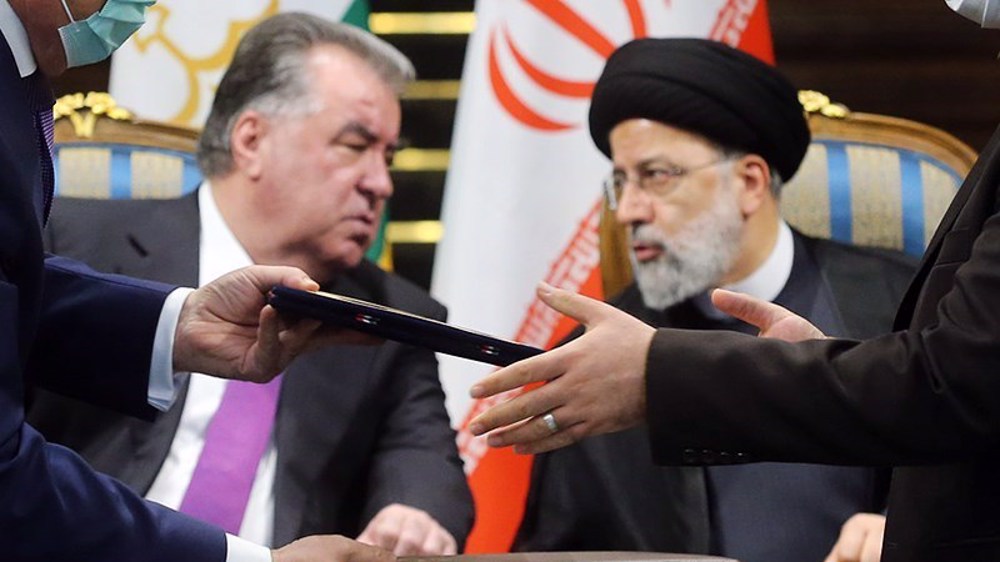
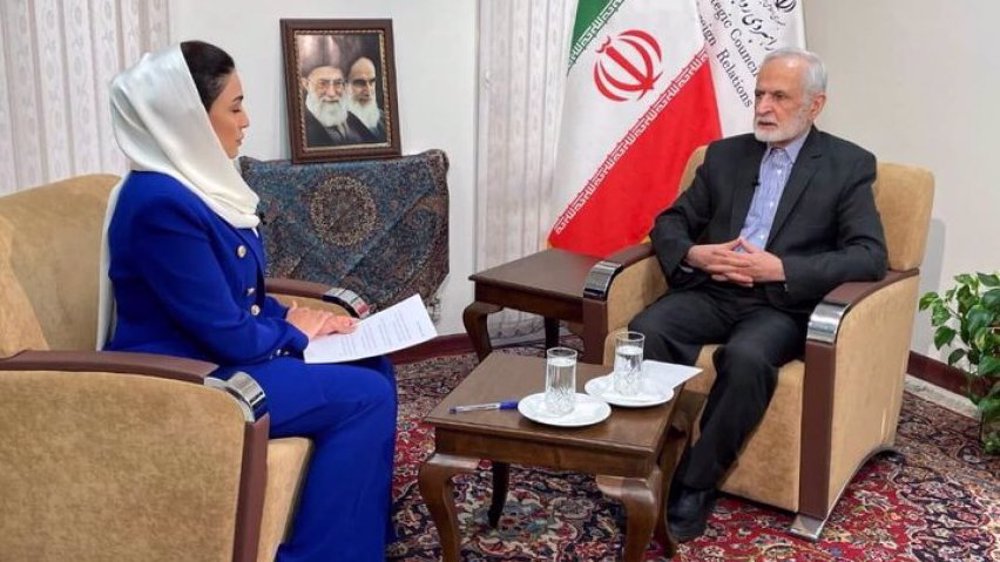
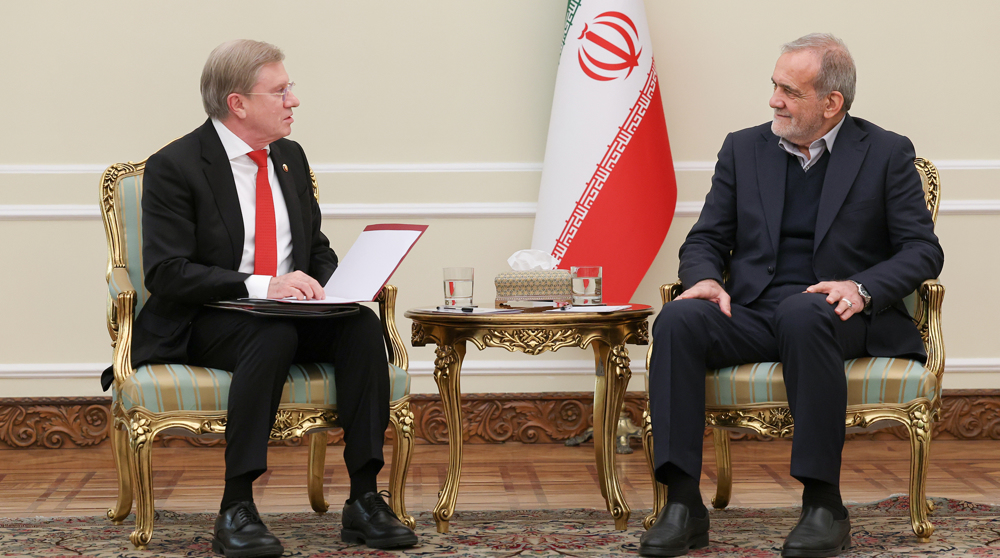
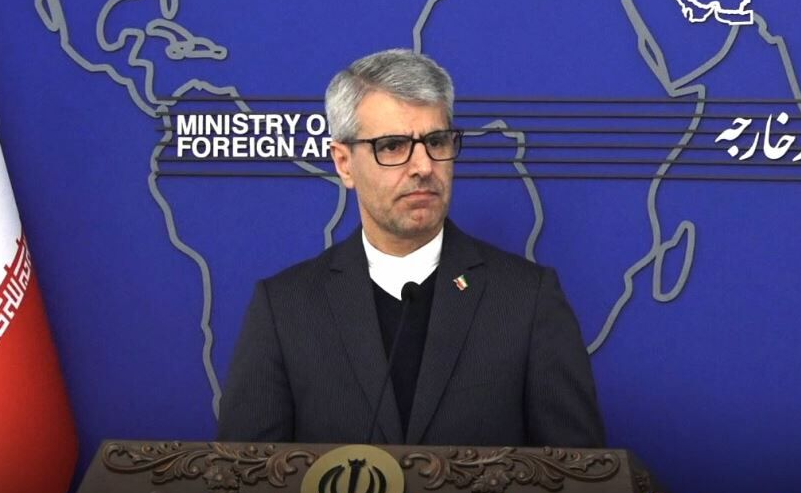



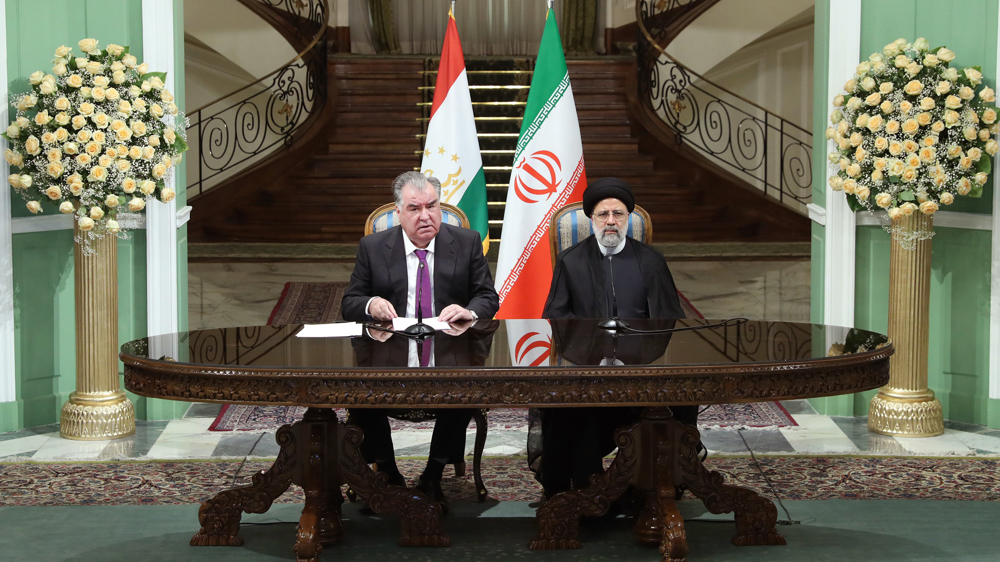
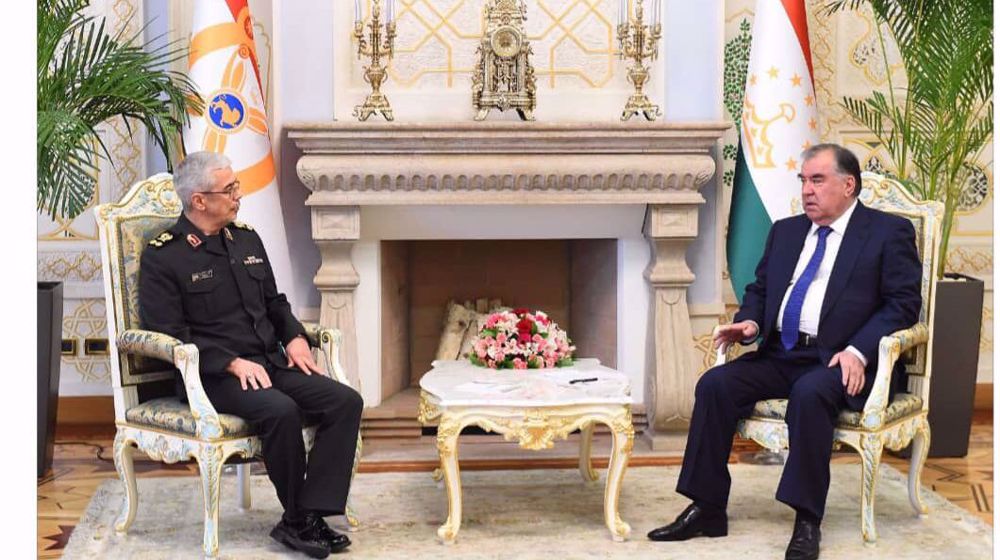
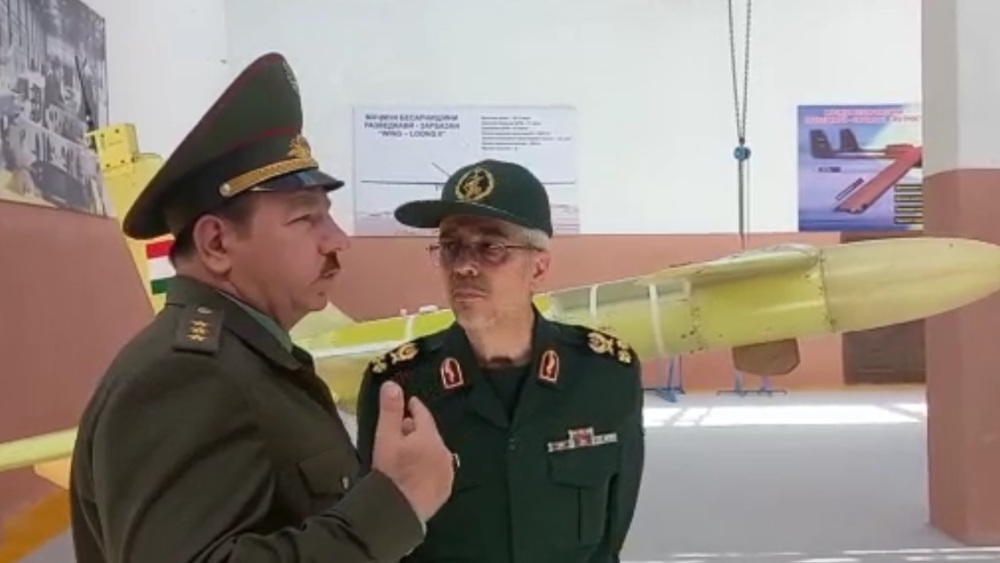
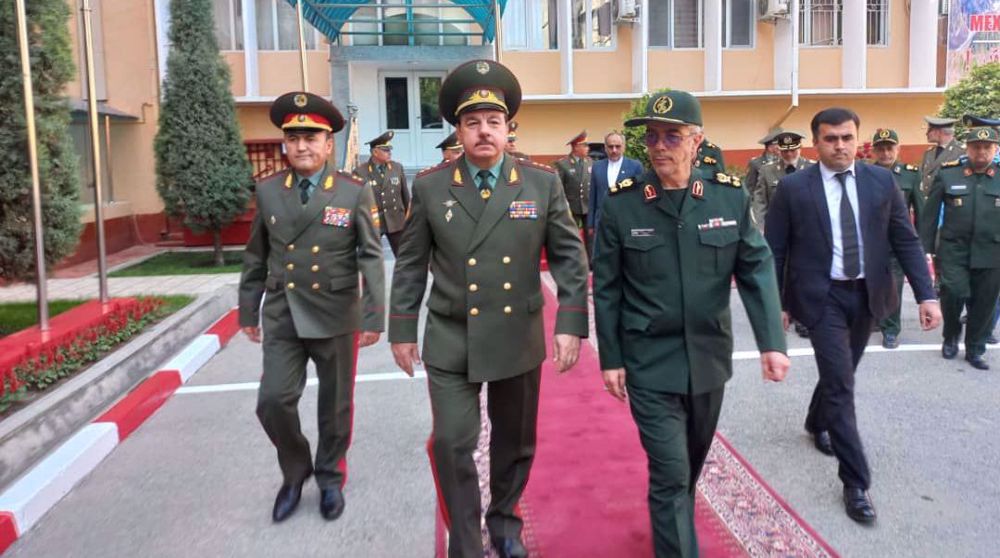
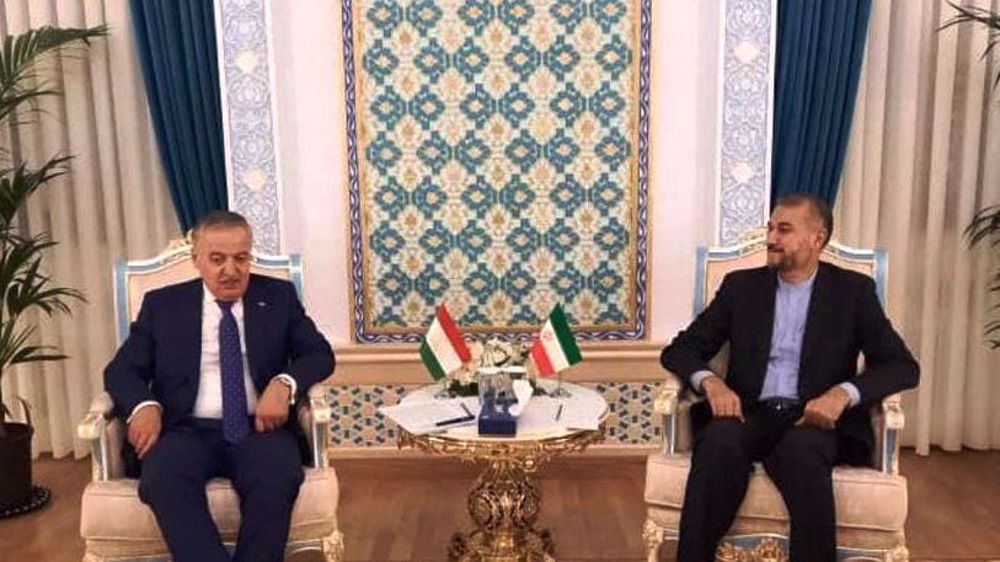

 This makes it easy to access the Press TV website
This makes it easy to access the Press TV website